History
Founded in 2000, MerTerre's main aim is to reduce the amount of litter that ends up in the sea.
Pour atteindre cet objectif, MerTerre propose d’apporter des connaissances sur les quantités, qualités et origines des déchets afin de définir des programmes de réduction adaptés et des moyens efficaces.
2000 : Naissance d’une association scientifique
C’est lors de l’écriture de sa thèse sur les macrodéchets littoraux (Les macrodéchets littoraux : une gestion publique empirique ? Étude du littoral de la région Provence-Alpes-Côte d’Azur), qu’ Isabelle Poitou comprend que la réponse à cette problématique environnementale complexe se situe à la croisée des sciences sociales et des sciences de la nature.
Identifiant l’absence de réponse globale concertée en France, elle fonde MerTerre association en 2000 avec pour mission de centraliser les informations relatives aux déchets solides abandonnés ou dispersés qui aboutissent aux milieux aquatiques, d’appréhender leurs origines juridiques, organisationnelles, financières et psychosociales, et de développer les outils de caractérisation nécessaires.
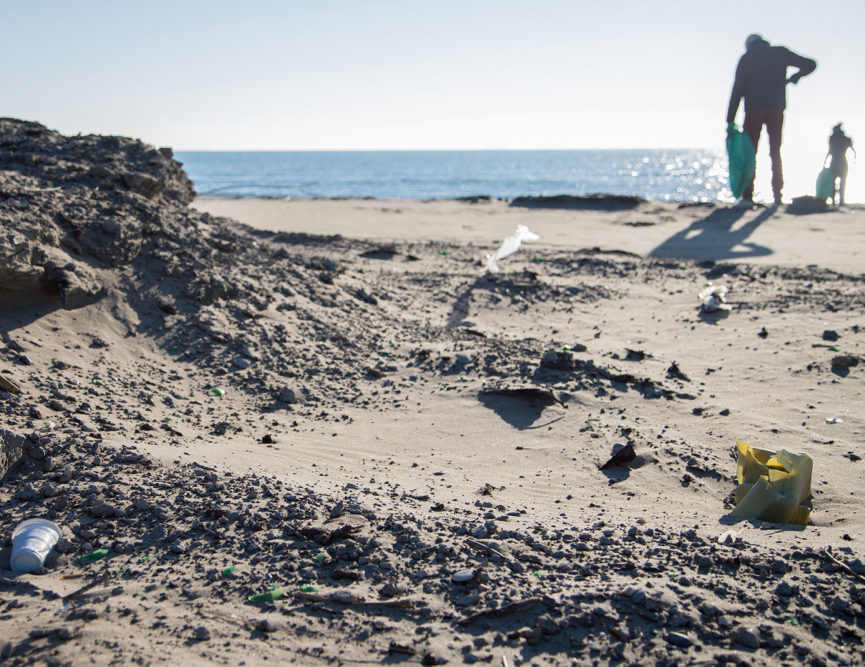
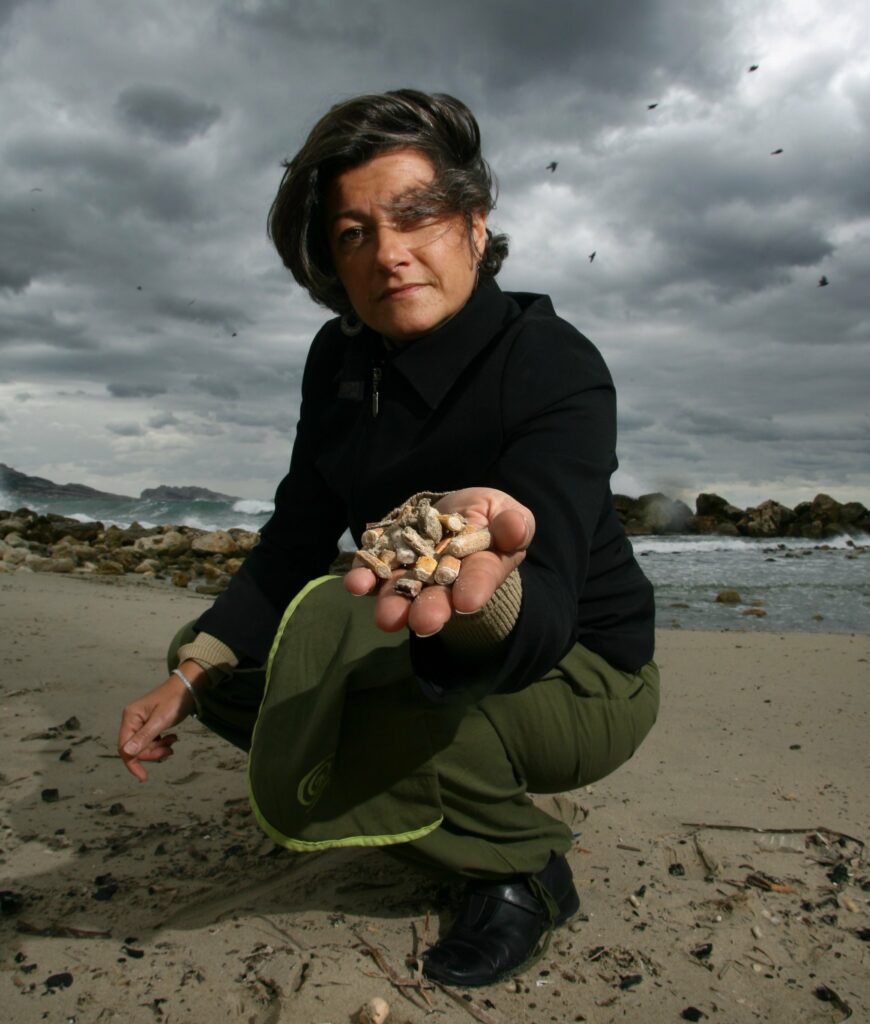
2004 : Mise en œuvre des premiers moyens de réduction
Après la soutenance de sa thèse, Isabelle Poitou oriente ses efforts vers l’application des solutions identifiées. Les déchets sauvages diffus s’avèrent être un outil pédagogique puissant : directement perceptibles, ils permettent de tracer leurs origines géographiques, sources socio-économiques et comportementales, facilitant ainsi la sensibilisation aux concepts d’écosystème, de gestion intégrée et de développement durable.
2006 : Création de l’Observatoire des déchets en Milieux Aquatiques (ODEMA)
En 2006, MerTerre initie la création du premier Observatoire des déchets en Milieux Aquatiques (ODEMA). qui constitue les prémices des futurs outils collaboratifs. ODEMA propose des méthodologies standardisées de caractérisation des déchets, permettant d’acquérir des données fiables sur les quantités, les qualités et les origines des déchets sauvages diffus, essentielles à l’élaboration de programmes de réduction adaptés.
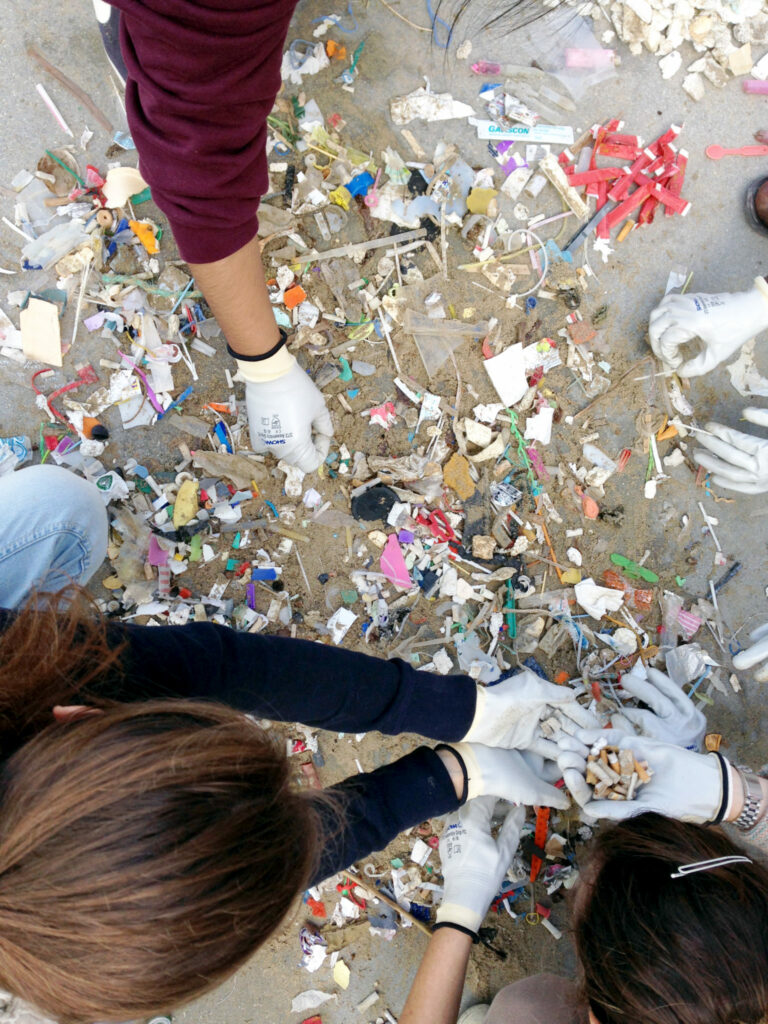
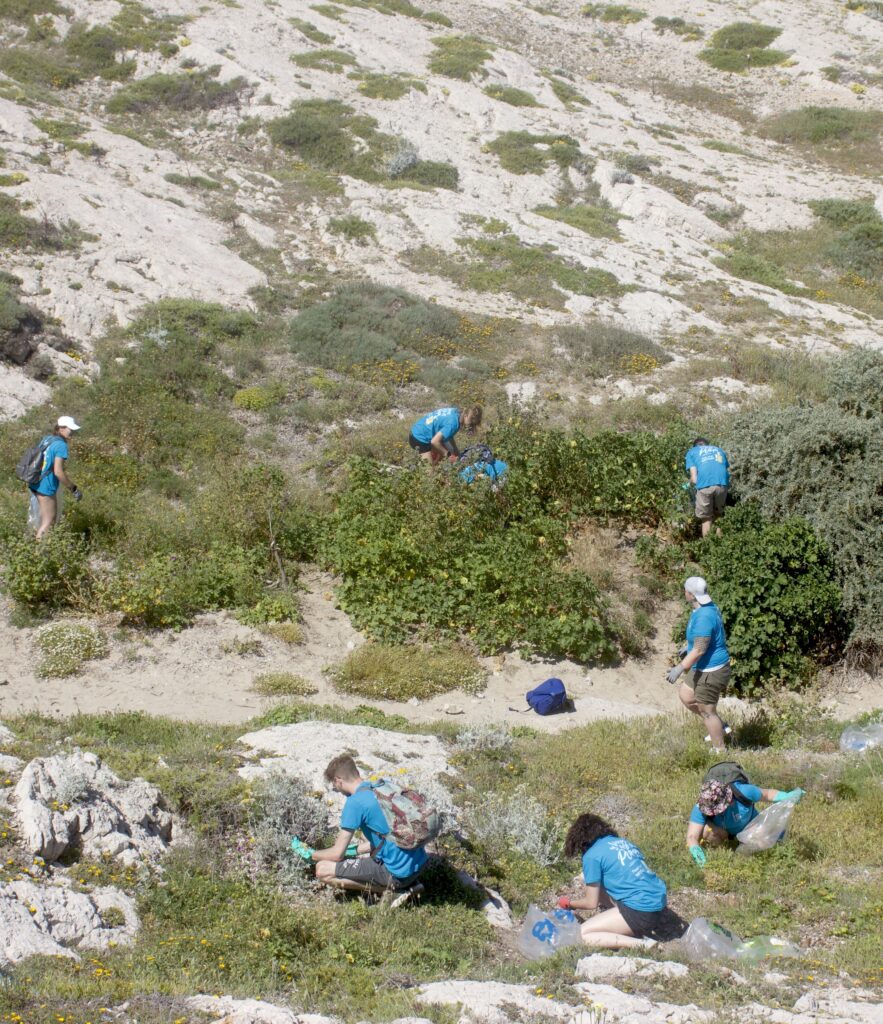
2008 et années suivantes : Engagement institutionnel et coordination
https://mer-terre.org/calanques-propres/Pour appliquer la Directive Cadre Stratégie pour le Milieu Marin (DCSMM) du 17 juin 2008, l’État français réunit de nombreux acteurs (associations, scientifiques, services de l’État, établissements publics) au sein de groupes de travail.
MerTerre intègre les groupes nationaux et européens tels que :
le Grenelle de l’environnement,
le Grenelle de la mer,
l’Marine litter workshop,
le groupe d’experts pour le descripteur 10 (DCSMM).
Ces contributions participent à l’évolution de la législation sur les déchets abandonnés diffus et à la structuration d’outils collaboratifs au service des politiques publiques.
Cette même année, la coordination de Calanques Propres, une opération de ramassage d’envergure, est confiée à MerTerre. Objectif : mutualiser les moyens, augmenter l’impact et sensibiliser largement tout en produisant des diagnostics partagés utiles aux gestionnaires locaux, communes et métropoles.
2012 : Contribution au réseau de surveillance nationale (DCSMM)
Dans le cadre de la DCSMM, l’État français met en place un plan d’action pour le milieu marin, incluant un programme de surveillance des déchets marins avec des protocoles partagés à l’échelle européenne. MerTerre contribue à définir l’état initial de la façade méditerranéenne et, grâce à son expérience, devient une référence pour la structuration du réseau français de surveillance porté par Cedre pour l’Etat français (cf état initial de la DCSMM).
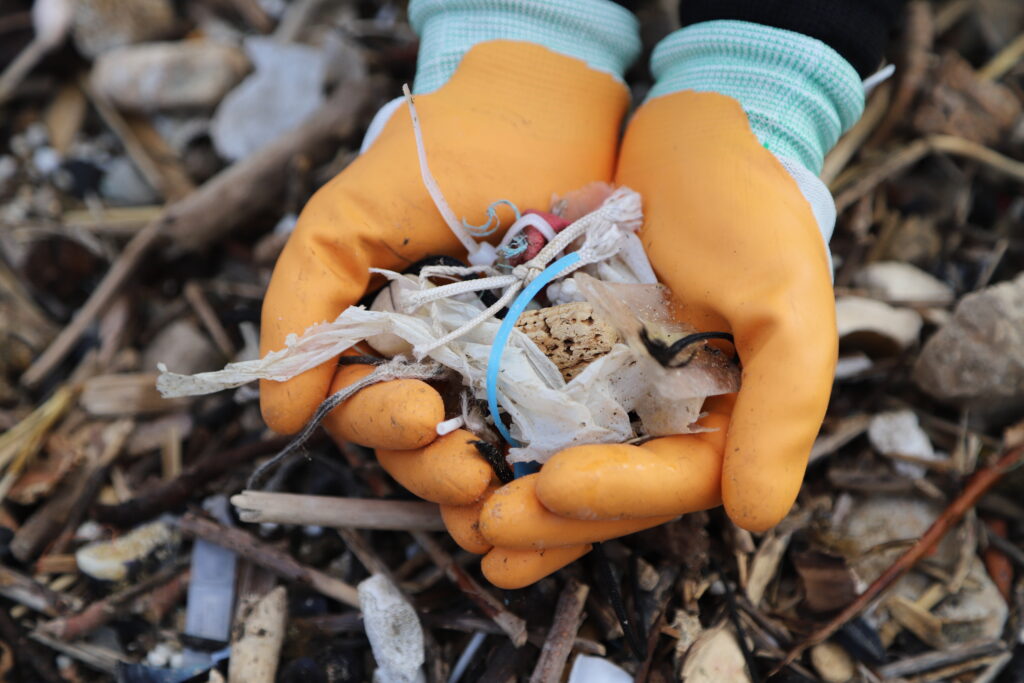
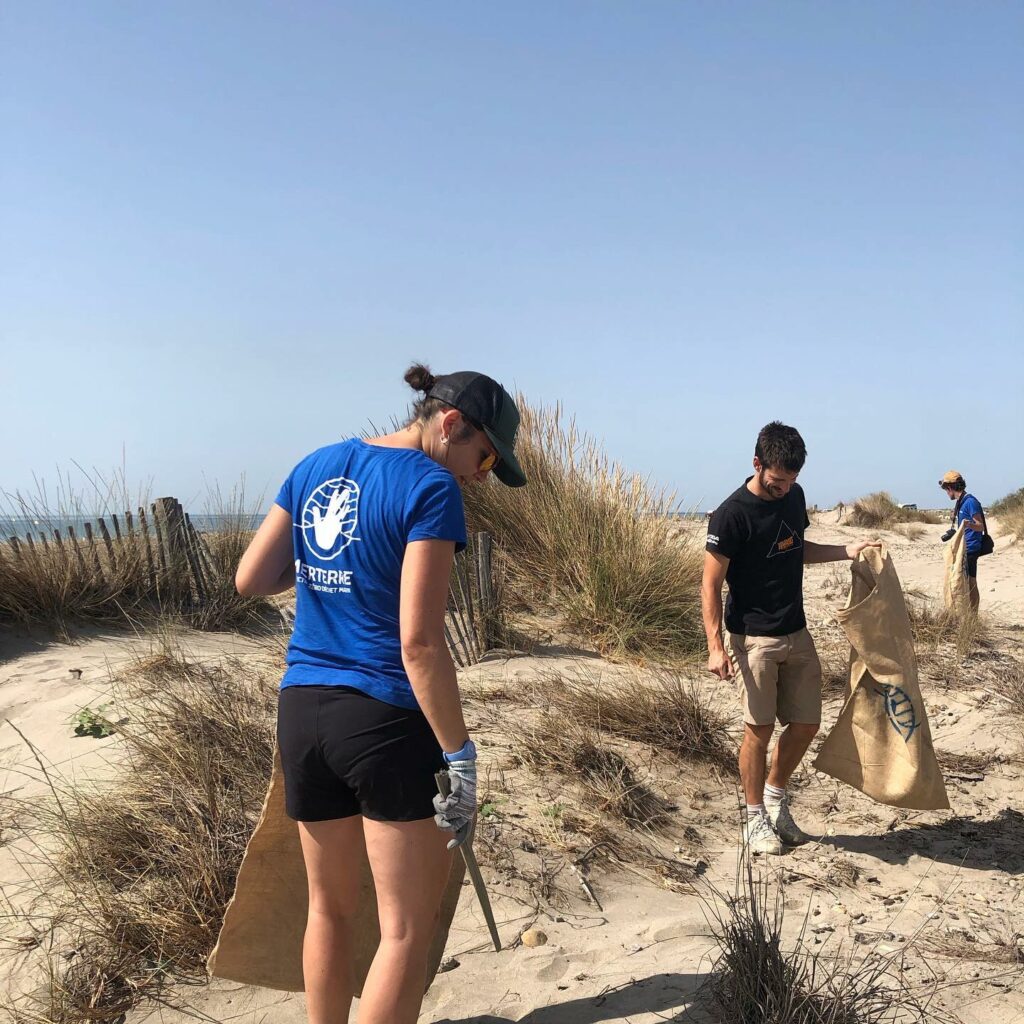
2026 : Science participatives et Adopt'1 Spot
En 2016, MerTerre travaille à l’adaptation française du programme participatif Adopt a Beach et propose de développer Adopt'1 Spot, un dispositif qui permet la collecte de données standardisées issues des ramassages citoyens. Ce programme vise non seulement le littoral, mais aussi les bassins versants intérieurs, d’où proviennent la majorité des déchets marins.
La même année, l’association participe à l’organisation des premières Rencontres nationales des collecteurs de Déchets Sauvages initiée par Denis Blot, sociologue de l’Université Picardie en partenariat avec Nature Libre à Wimille-Wimereux dans le Nord-Pas-de-Calais fédérant acteurs et initiatives autour d’outils collaboratifs et d’expériences terrain partagées.
2017 : Rencontres communautaire et conception d’outils web
The 2ᵉ Rencontres nationales des collecteurs de déchets sauvages, organisées à Marseille, permettent de mieux comprendre les attentes de la communauté et d’affiner la vision d’un outil web collaboratif partagé, destiné à servir l’ensemble des acteurs de terrain.
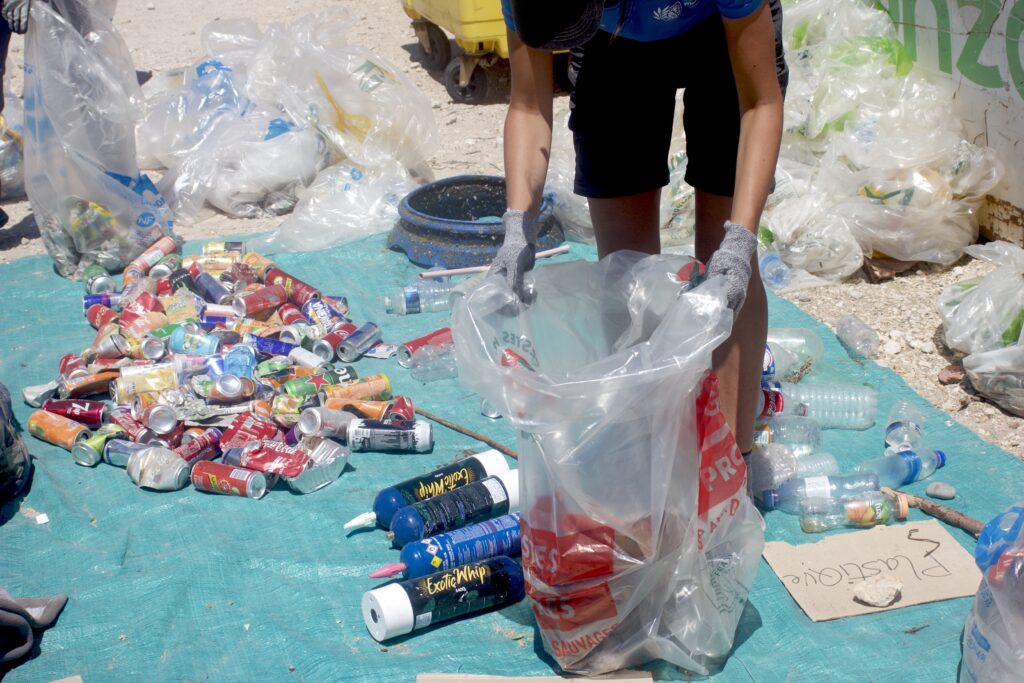
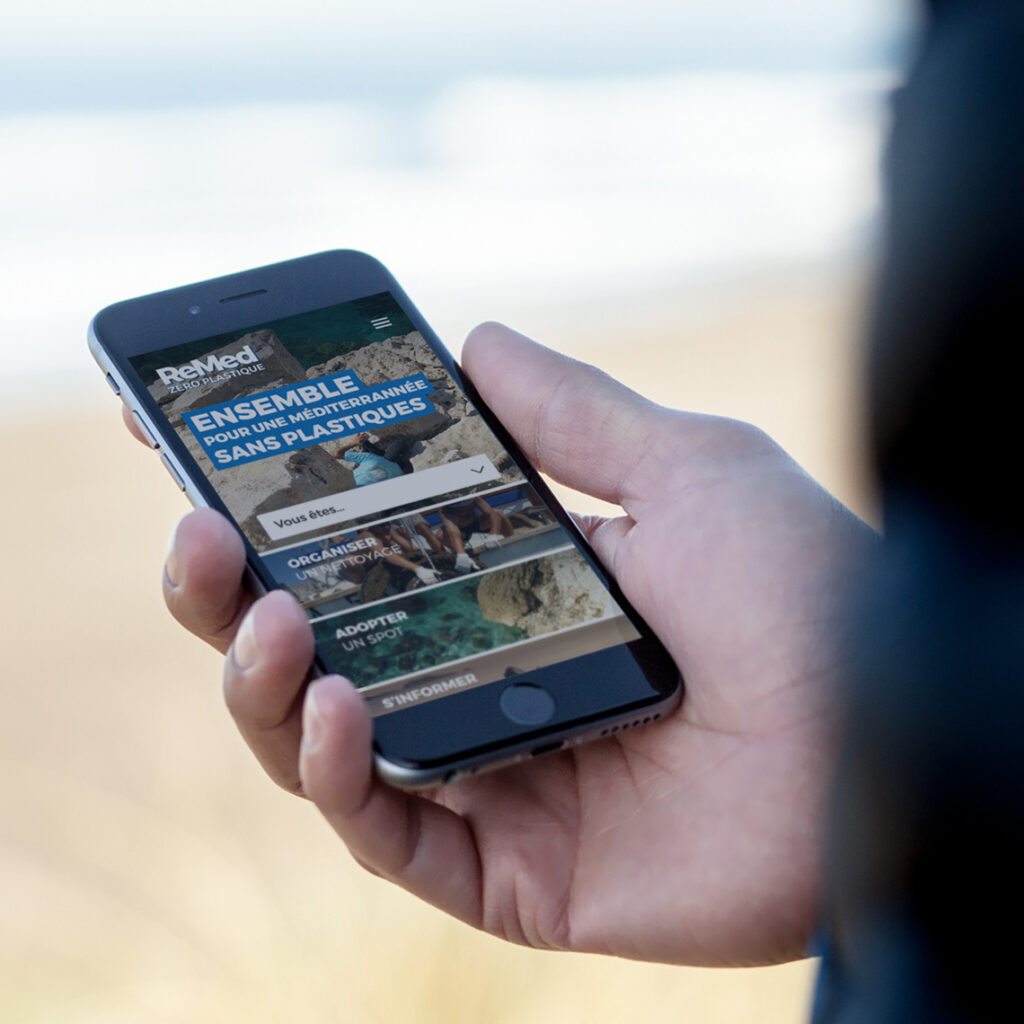
2018 : ReMed Zéro Plastique
En s’appuyant sur les besoins identifiés auprès de ses partenaires régionaux et sur plusieurs années de travaux antérieurs, MerTerre lance en Région Sud le projet ReMed Zéro Plastic, avec le soutien de la Région Provence-Alpes-Côte d’Azur et du Ministère de la Transition Écologique (MTE), en partenariat avec le Muséum national d’Histoire naturelle (MNHN).
Cette plateforme collaborative a pour vocation de structurer et de centraliser les données standardisées acquises par le réseau d’acteurs engagés dans la réduction des déchets sauvages susceptibles d’affecter la Méditerranée.
En 2019, grâce à son implantation marseillaise et à ses collaborations locales, MerTerre met en ligne ReMed Zéro Plastique en amont de l’opération Calanques Propres afin de tester l’outil avec les participants habitués à la caractérisation.
2021 : Lancement de Zéro Déchet Sauvage
Fruit de l’expérience de la plateforme ReMed Zéro Plastique, la plateforme nationale Zero Dechet Sauvage est lancée officiellement en juin 2021. Elle propose une gouvernance partagée comprenant :
- MerTerre
- Mosaic (unité de service du MNHN / Ministère de la Transition Écologique / Région PACA)
- Comité Technique composé des structures copilotes
- Comité Scientifique composé de professionnels spécialisés
Zéro Déchet Sauvage constitue aujourd’hui un réseau national de science participative et de collecte harmonisée de données, facilitant diagnostics territoriaux, planification d’actions et recommandation de politiques publiques adaptées.
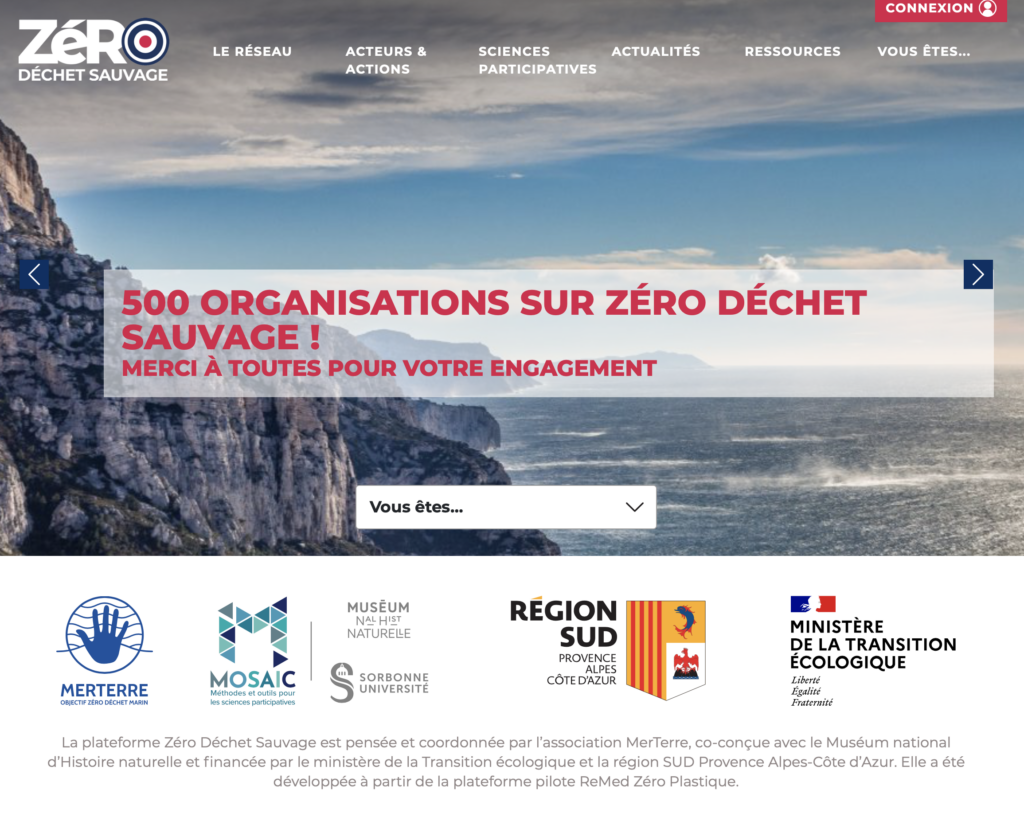
2022 : Déploiement territorial et projets pilotes
Le déploiement de la plateforme Zéro Déchet Sauvage s’étend à plusieurs zones géographiques françaises (Bretagne, Occitanie, Sud, Auvergne-Rhône-Alpes), permettant aux collectivités, gestionnaires d’espaces naturels et pouvoirs publics d’utiliser les données pour réaliser des diagnostics territoriaux et des stratégies d’intervention adaptées.
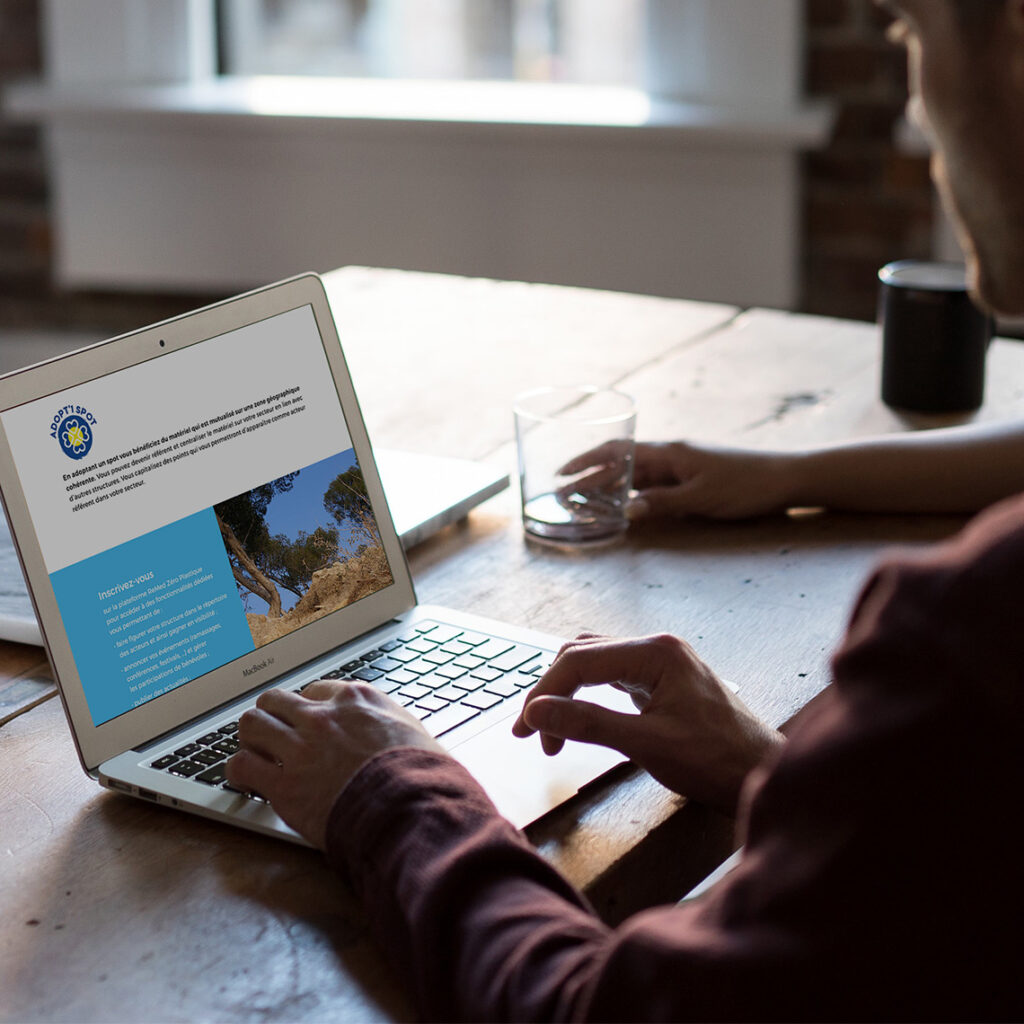
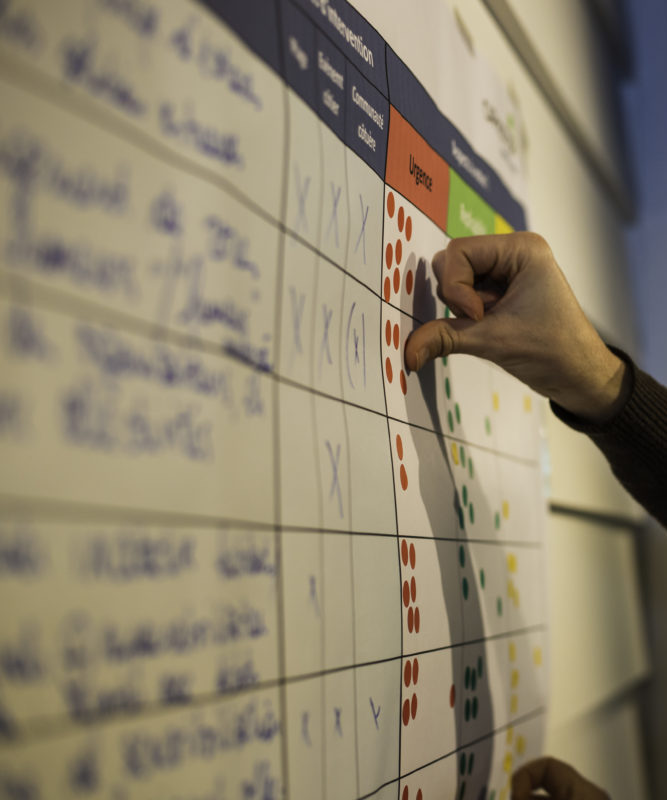
2023 et perspectives
Les plateformes collaboratives évoluent pour répondre aux besoins des utilisateurs. Parmi les développements prévus :
- outil de repérage des zones d’accumulation préférentielles
- espace dédié à l’aide à l’élaboration de plans d’action territoriaux
- renforcement des rencontres et échanges entre acteurs partenaires
- élaboration de guides de capitalisation des bonnes pratiques pour favoriser la réplicabilité des stratégies efficaces.
